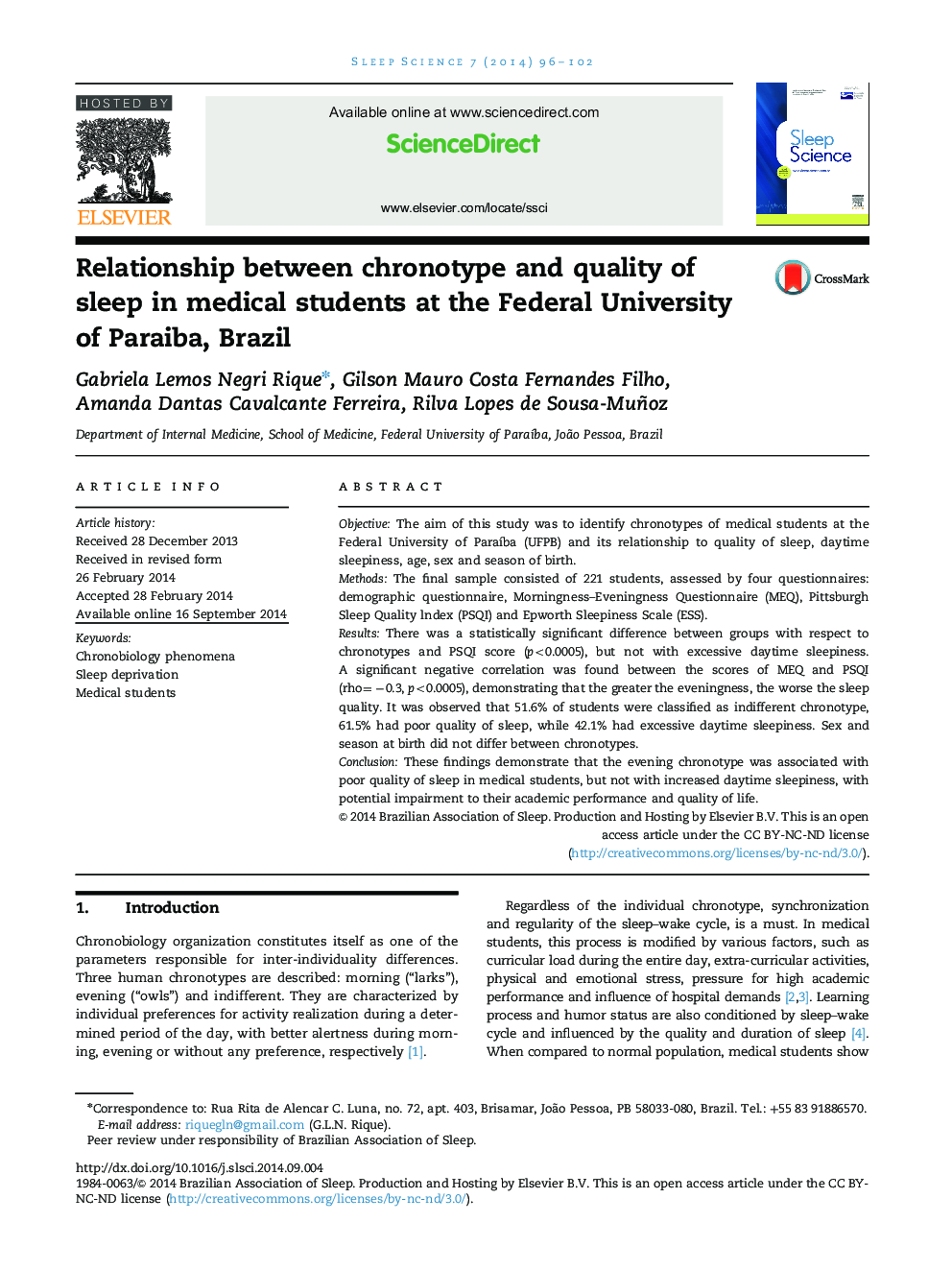| Article ID | Journal | Published Year | Pages | File Type |
|---|---|---|---|---|
| 3026633 | Sleep Science | 2014 | 7 Pages |
ObjectiveThe aim of this study was to identify chronotypes of medical students at the Federal University of Paraíba (UFPB) and its relationship to quality of sleep, daytime sleepiness, age, sex and season of birth.MethodsThe final sample consisted of 221 students, assessed by four questionnaires: demographic questionnaire, Morningness–Eveningness Questionnaire (MEQ), Pittsburgh Sleep Quality lndex (PSQI) and Epworth Sleepiness Scale (ESS).ResultsThere was a statistically significant difference between groups with respect to chronotypes and PSQI score (p<0.0005), but not with excessive daytime sleepiness. A significant negative correlation was found between the scores of MEQ and PSQI (rho=−0.3, p<0.0005), demonstrating that the greater the eveningness, the worse the sleep quality. It was observed that 51.6% of students were classified as indifferent chronotype, 61.5% had poor quality of sleep, while 42.1% had excessive daytime sleepiness. Sex and season at birth did not differ between chronotypes.ConclusionThese findings demonstrate that the evening chronotype was associated with poor quality of sleep in medical students, but not with increased daytime sleepiness, with potential impairment to their academic performance and quality of life.
